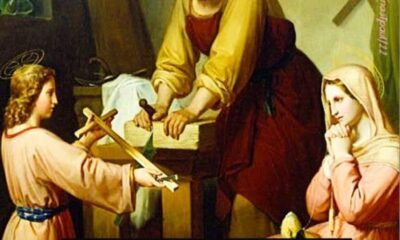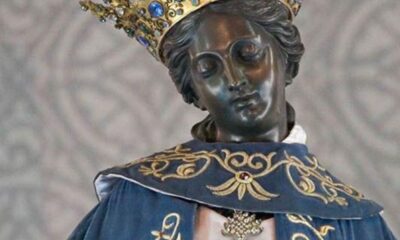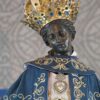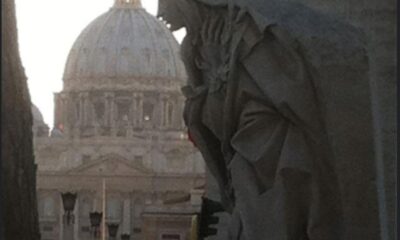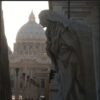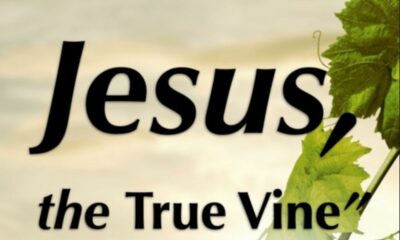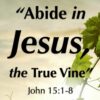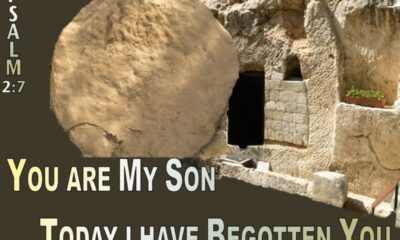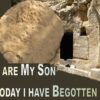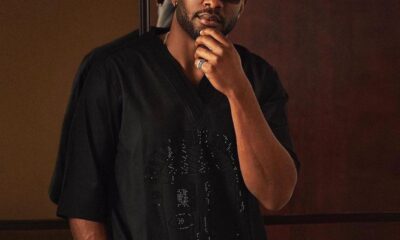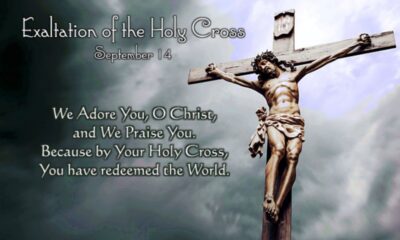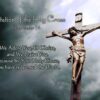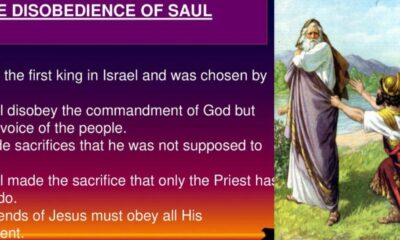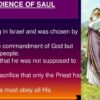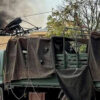No Sacrifice, No Christianity! No Cross, No Crown!
Twenty Fourth Sunday in Ordinary Time (Year B)
Isa 50.5-9; Ps 114; Jas 2.14-18; Mk 8.27-35
1. In the sixteenth century a young Catholic German friar called Martin Luther had a crisis. To cut a very long story short, a story which some of you will already know about, the intellectual and moral crisis of the young Luther gave birth to what we now call the Protestant reformation. It is a long and fascinating story, well worth looking up and reading about. One of the central issues which Luther raised was the question of how we are justified by God; that is, how we are put right with God. Luther had what he thought was a moment of personal revelation, or inspiration, and thought that he had at last understood as never before the kernel of this problem. He concluded that we are justified with God by faith alone. Our faith and trust in God is what puts us on the side of the angels. The Catholic position is that of course faith is essential, but that faith must manifest itself in good works, good actions. The second reading at Mass today, from the letter of St. James, gives this teaching in no uncertain terms. Faith without works is dead.
2. The fact that the Holy Spirit inspired Saint James to write about this subject in his letter shows that it was probably already, even in the earliest days of the Church, a controversial issue. And it is in fact an important question, a question which Luther was not the first to have raised, a question which many thoughtful people have asked themselves. How do I become righteous? How do I become acceptable to God? How do I know that I am pleasing to God? Why do I have to suffer if I am a child of God? These are very basic and important questions. Some people believe that the only thing that matters is to have faith. In a way they are right. Without faith, it is impossible to please God. We have to believe what we say we believe when we recite the Nicene Creed at Mass on Sundays and Holydays. We must accept that Almighty God exists. Otherwise how could we become the sons and daughters of God? And that is only the start. We must also believe all those things which God has revealed about Himself. That He is one God in Three Persons, that He may be known intimately in and through Jesus of Nazareth, the only Son of God, The image of the invisible God. That is the ground of our faith. Without those beliefs there is no real sense in which we can call ourselves Christians. Without faith we cannot possibly please God.
3. How simple our Christian life would be if that were the end of the story. The reason it is not the end of the story is to do with our make-up as human beings. Human beings are both body and soul. We must love and serve God with our soul and with our body. To do only one of those would be incomplete love and incomplete service. We make an act of faith in our soul, the spiritual part of our being. But if our faith remains only that, a spiritual act, it is good only as far as it goes. Because we have a body, it has to go further, much further. It has to express itself in the bodily human life we live. This is what Saint James means when he reminds us that “faith without works is dead”. He means that faith must express itself in the external world, in the physical world that we and all our fellow humans inhabit. If we think about it, we see that Almighty God has made provision for this necessity, in the workings of our holy religion. Through the seven sacraments, and also through a whole host of sacramentals, God gives us opportunities to express our faith and build it up, in the physical material order upon which grace is bestowed on us. Catholicism is both a spiritual religion and also, at the same time, a religion of the flesh, a religion which interacts at every moment with the physical world.
4. When we come into church, we sign ourselves with the sign of the cross. A physical gesture that brings us a spiritual grace. It reminds us of the Blessed Trinity, our baptism, the way of salvation, and because it is sign of the cross we are blessed, it has the power, through faith, to keep the devil at bay, to keep us on the side of the angels. Same as Holy water – a sacramental. We can keep it in our homes, to bless ourselves with it at the start and the end of the day.
5. In church, having signed ourselves with the cross, we then genuflect, we bow the knee, to Christ, hidden from our sight, hidden but truly present in the tabernacle. We bow the knee, a bodily gesture, to express our faith in the Real Presence of Christ in the Blessed Sacrament. Our faith in the Blessed Sacrament is something spiritual which resides in our immortal soul. We express that faith in an act of love and adoration made with our bodies. As we genuflect we do well to make some short prayer to the hidden Lord: “Devoutly I adore Thee, Deity unseen”. “Jesus in the Blessed Sacrament, I worship You.”
6. Several times during Mass we make the sign of the cross. The making of this holy sign is itself a prayer, an act of public witness, and it strengthens our faith. We should make the sign of the cross not in a hurried or careless way, but confidently, deliberately, a generous prayerful gesture. It is the sign of the instrument by which the world is saved.
7. In so many ways, we express and nurture our faith through pious works. The deeper truth of all such piety is that salvation comes to us in the flesh. Just as the Son of God came to us in the flesh, so we return to Him, in the flesh. Weak and sinful flesh certainly, but flesh which has been ennobled by the indwelling of an immortal spirit. The faith which is essential to the salvation of that immortal soul is fanned to a blaze by the pious Catholic works we perform in our mortal bodies.
If you have never felt pain, how will you know God is a healer?
If you have never felt sorrow how will you know God is a comforter?
Regardless of your circumstances Take up your cross, Trust in God and Follow Him till the end.
REMEMBER
Faith without good works is dead!
Christianity without suffering is false!
